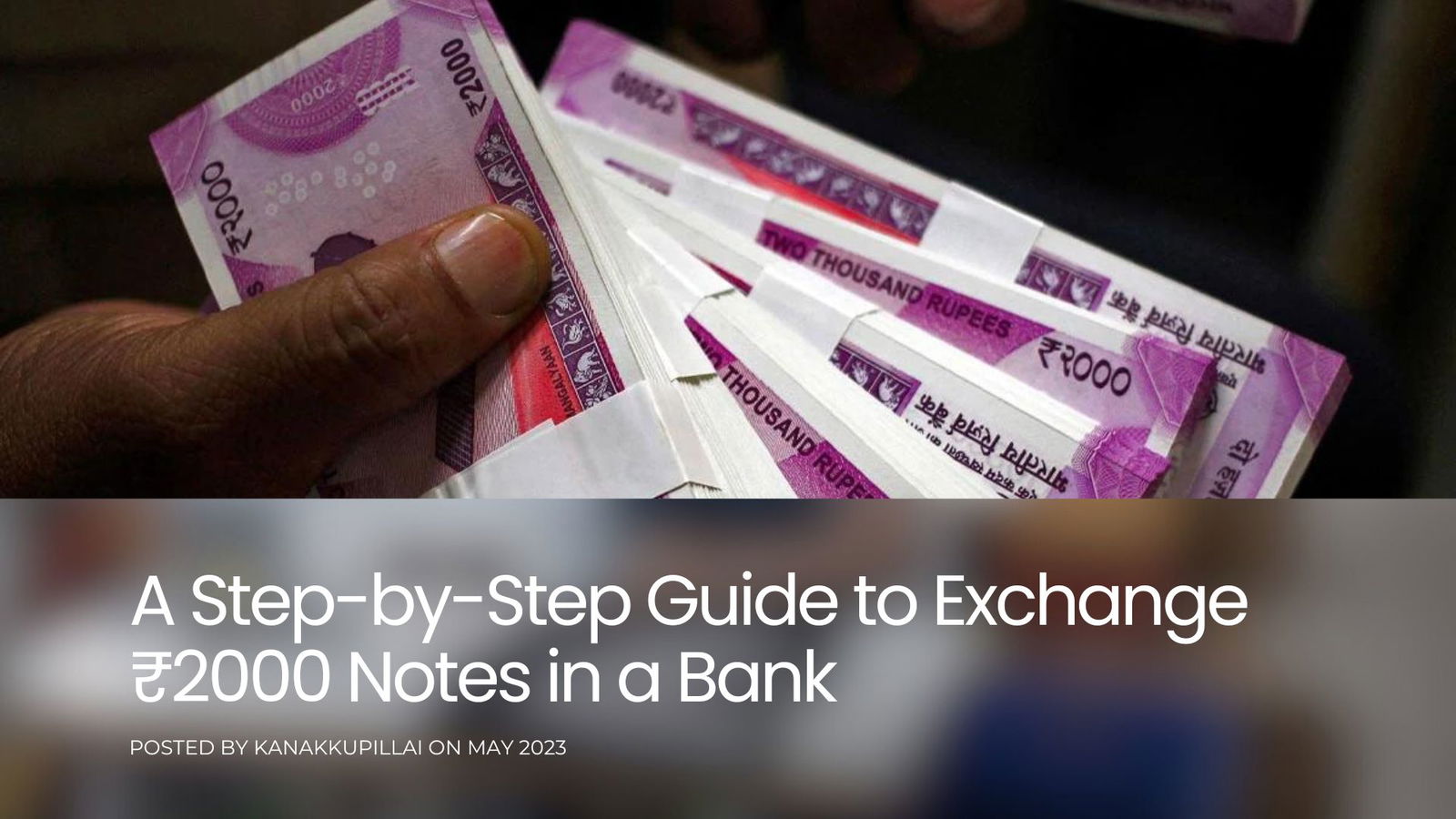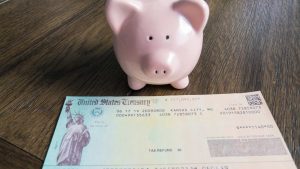![]()
The Reserve Bank of India (RBI) recently announced that it will withdraw India’s highest denomination currency, the ₹2000 note. Introduced in 2016 following the demonetization drive, these notes must be deposited or exchanged by 30th September 2023. It’s important to note that even after the deadline, the ₹2000 notes will remain legal tender. The RBI has provided clear instructions for the public to approach their nearest bank branches to facilitate the deposit or exchange process. In this blog post, we will guide you through the step-by-step process of exchanging your ₹2000 notes in a bank.
Key Takeaways
- The RBI has decided to withdraw the ₹2000 notes, and the deadline for depositing or exchanging them is 30th September 2023.
- ₹2000 notes will remain legal tender even after the deadline.
- Approach your nearest bank branch to deposit or exchange the ₹2000 notes.
- Fill out a request slip provided by the bank, including your name, unique identification number, and details of the ₹2000 notes for exchange.
- The exchange limit for ₹2000 notes is ₹20,000 at a time.
- Non-account holders can exchange ₹2000 banknotes up to a limit of ₹20,000 at a time at any bank branch.
- There are no fees for exchanging ₹2000 notes; the facility is provided free of cost.
- Deposit ₹2000 notes into your bank account without restrictions, complying with the applicable KYC norms and regulatory requirements.
- The process for depositing or exchanging ₹2000 notes starts on 23rd May 2023.
- Stay informed and act within the given timeline to ensure a smooth transition and compliance with the RBI’s guidelines.
A Step-by-Step Guide to Exchanging ₹2000 Notes in a Bank
Step 1:
Reach Your Bank From 23rd May 2023; public members can visit their nearest bank branch to deposit or exchange their ₹2000 notes. If you have an account with that particular bank, providing your account details will help streamline the deposition and exchange process.
Step 2:
Fill Out the ‘Request Slip’ for Exchange Upon initiating the process; the bank will provide you with a request slip that needs to be filled accurately to facilitate the exchange of ₹2000 notes. Here’s how to fill out the request slip correctly:
a) Fill in the ‘Tenderer’ Name: Write your name in capital letters.
b) Unique Identification Number: Provide the unique identification number from the accepted identity proof. You must present the original identity proof during the exchange transaction.
Accepted identity proofs include Aadhaar Card, Driving License, Voter ID Card, Passport, NREGA Card, and Population Register.
After filling in the identification details, you need to specify the details of the ₹2000 notes you wish to submit for exchange:
- Denomination: Write ₹2000 as the denomination.
- Number of Pieces: Indicate the number of ₹2000 notes you submit for exchange.
- Value: Calculate the total amount you are exchanging (up to the maximum limit of ₹20,000 at a time) and write the total value.
- Sign the Form: Once you have filled in all the exchange details, proceed to sign the form.
- Place and Date: Mention the place where you are filing for the exchange and the exact date of the transaction.
Step 3:
Submit the Form After completing the request slip, submit it along with your ₹2000 notes at the nearest bank branch to initiate the exchange process.
Exchange/Deposit Limits of Rs 2000:
Public members can exchange ₹2000 banknotes up to a limit of ₹20,000 at a time. There are no deposit restrictions, subject to compliance with Know Your Customer (KYC) norms and other applicable statutory/regulatory requirements.
Last Date for Exchange/Deposit Dates of Rs 2000:
The RBI has stated that people can start approaching the banks to deposit or exchange their ₹2000 notes from 23rd May 2023. The last date for the process is 30th September 2023.
Exchange/Deposit Fees:
The RBI has clarified that the exchange facility will be free of cost, ensuring a hassle-free process for individuals.
Exchange for Non-Account Holders:
Non-account holders can exchange ₹2000 banknotes up to a limit of ₹20,000 at a time at any bank branch.
Conclusion:
With the withdrawal of the ₹2000 notes, the RBI has outlined a simple and systematic process for individuals to deposit or exchange their currency. By following this step-by-step guide, you can ensure a smooth transition and comply with the RBI’s directives. Remember to act within the designated dates and contact your bank for any additional clarification or guidance.
FAQs on Rs 2000 Notes
1) Why is the Reserve Bank of India (RBI) withdrawing the ₹2000 notes?
The RBI has decided to withdraw the ₹2000 notes as part of its currency management strategy.
2) When do I need to deposit or exchange my ₹2000 notes by?
The deadline for depositing or exchanging ₹2000 notes is 30th September 2023.
3) Can I still use the ₹2000 notes after the deadline?
Yes, the ₹2000 notes will remain legal tender even after the stipulated deadline.
4) Where can I deposit or exchange my ₹2000 notes?
You can approach your nearest bank branch to deposit or exchange your ₹2000 notes.
5) Can I deposit ₹2000 notes into my bank account without any restrictions?
Yes, public members can deposit ₹2000 notes into their bank accounts without any restrictions, subject to compliance with Know Your Customer (KYC) norms and other applicable regulatory requirements.
6) What are the accepted identity proofs for the exchange process?
The accepted identity proofs include Aadhaar Card, Driving License, Voter ID Card, Passport, NREGA Card, and Population Register.
7) Is there a maximum limit for exchanging ₹2000 notes at a time?
Yes, the maximum limit for exchanging ₹2000 notes at a time is ₹20,000.
8) Can I exchange ₹2000 notes if I don’t have a bank account?
Yes, even non-account holders can exchange ₹2000 banknotes up to a limit of ₹20,000 at a time at any bank branch.
9) Will there be any fees for exchanging ₹2000 notes?
No, the RBI has stated that the exchange facility for ₹2000 notes will be provided free of cost.
10) When can I start approaching the banks for depositing or exchanging my ₹2000 notes?
You can start approaching the banks for depositing or exchanging ₹2000 notes from 23rd May 2023 onwards.





